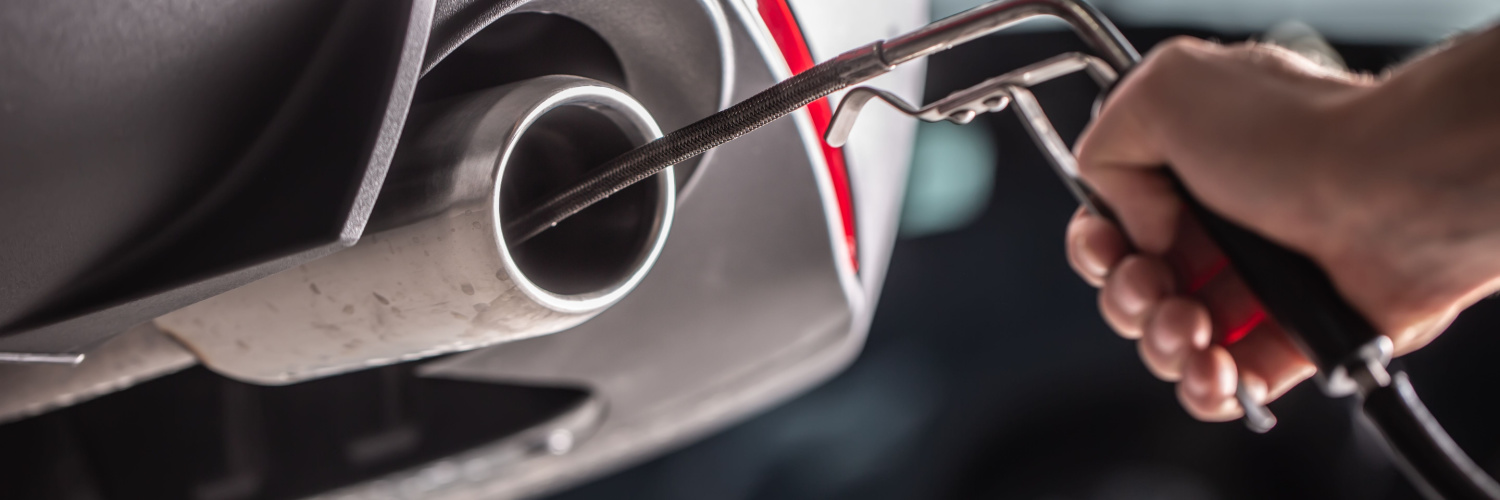Ins and outs of your Exhaust System

What do you mean by Exhaust system?
An exhaust system directs reaction exhaust gases away from controlled combustion within an engine. The entire system, which includes one or more exhaust pipes, transports burnt gases from the engine.
The exhaust system collects exhaust gases from the cylinders, removes harmful substances, reduces noise, and safely discharges the purified exhaust gases from the vehicle’s inhabitants.
Key components of an Exhaust system
Here are some of the key components of an Exhaust system:
Exhaust manifold
The exhaust manifold connects to the cylinder head and combines the exhaust from each cylinder into a single pipe. The manifold can be made of steel, aluminium, stainless steel, or cast iron.
Oxygen sensor
An oxygen sensor is used in all modern fuel-injected vehicles to measure the amount of oxygen in the exhaust. The computer can then add or subtract fuel to obtain the optimal mixture for maximum fuel economy. The oxygen sensor is installed in the exhaust manifold or near the exhaust pipe.
Catalytic converter
This muffler-like component converts harmful carbon monoxide and hydrocarbons to water vapour and carbon dioxide. Some converters also reduce harmful nitrogen oxides. The converter is located between the exhaust manifold and the muffler.
Muffler/ Silencer
Every internal combustion engine emits “exhaust noise” due to the pulsating emission of gases from the cylinders. This noise must be reduced by lowering the sound energy of the exhaust gas flow. There are two basic options: sound absorption or reflection in the silencer. These two principles are usually combined in a single silencer.
Exhaust chambers and exhaust flaps are two more sound-absorbing and sound-modifying elements that can be used to eliminate particularly undesirable frequencies from outlet noise. Catalytic converters also have a sound-absorbing effect.
Resonator
The muffler alone cannot always quiet all the engine noise. Many exhaust systems also include a resonator which is like a mini-muffler. They are usually straight pipes filled with sound-muffling materials. The resonator can be either before or after the muffler in the exhaust system.
Exhaust pipe
The exhaust pipe connects all the abovementioned components and transports the gas out of your tailpipe. Exhaust tubing is typically made of steel, but it can also be stainless steel (which lasts longer due to its corrosion resistance) or aluminized steel tubing. Aluminized steel resists corrosion better than plain steel but not as well as stainless steel. However, aluminized steel is less expensive than stainless steel.
Working on an Exhaust system
A combustion engine produces exhaust gases after the fourth cycle. The exhaust manifold is connected to the engine and is designed with pipes running through each cylinder. It only has one output. The manifold collects exhaust gases from the various chambers and routes them through a single pipe. A poppet valve controls the opening and closing of the exhaust manifold.
After the exhaust gases are collected, they are piped through the catalytic converter. Stock pipings are designed to reduce vehicle costs, so they have unnecessary tapers that affect exhaust gas pressure and can cause back pressure, which leads to failure.
Oxygen sensors measure the amount of oxygen in the exhaust gas. Too much oxygen indicates that the car is not using enough fuel, while too little oxygen indicates that the car is using too much fuel. This information is sent to the TCU, which modifies the fuel delivery accordingly.
The catalytic converter is a complex system that employs chemistry to convert harmful NOx and CO gases into simple, harmless gases. It degrades the gases through two processes: reduction and oxidation. When a NOx particle passes through the catalyst, it is reduced. The converter converts the NOx particle into N and O, both harmless. As a result, it is known as reduction. When a CO particle passes through, oxidation occurs.
Why is Pipe so important?
All of the gases from the engine pass through the exhaust pipe on their way to the catalytic converter and silencer. The catalytic converter removes harmful toxins from the exhaust gases, making your vehicle more environmentally friendly, and the silencer reduces the overall volume to a comfortable level.
A hole in the exhaust pipe can interfere with all these processes by allowing exhaust fumes to escape prematurely, resulting in a leak of harmful toxins, increased noise, and decreased engine pressure.
Can I drive a car with a broken exhaust?
Because an exhaust system removes harmful gases and fumes from your vehicle, it is essential. Its functionality is critical to the condition and safety of the vehicle.
Any issues with your exhaust should be addressed immediately, whether a few cracks in the pipe or it’s hanging off the back of your car. However, the severity of your exhaust problem can be affected by driving with it untreated indefinitely.
Important things you need to know before buying an Exhaust System for your vehicle!
No drone
Because most exhaust system customers are concerned with sound quality, Gustafson Auto Clinic. recommends looking for the words “no drone.” An exhaust drone is a loud, monotone sound reverberating throughout the cabin as you drive. (You can see why you might want to avoid this on a daily driver). One of the main reasons to stick with more reputable brands when shopping is to keep drones at bay
Numerous manufacturers can provide a low-cost straight pipe. The question is, how long will it last? Is it going to come off? Is it going to pass inspection?
Quality steel
The quality of the stainless steel is an important factor to consider when purchasing an exhaust upgrade. Stainless steel has superior high-temperature properties in addition to resisting rust (hence the name). As a result, it’s ideal for headers and exhaust systems.
So why wait? Upgrade your exhaust system, get in touch with Gustafson Auto Clinic.

